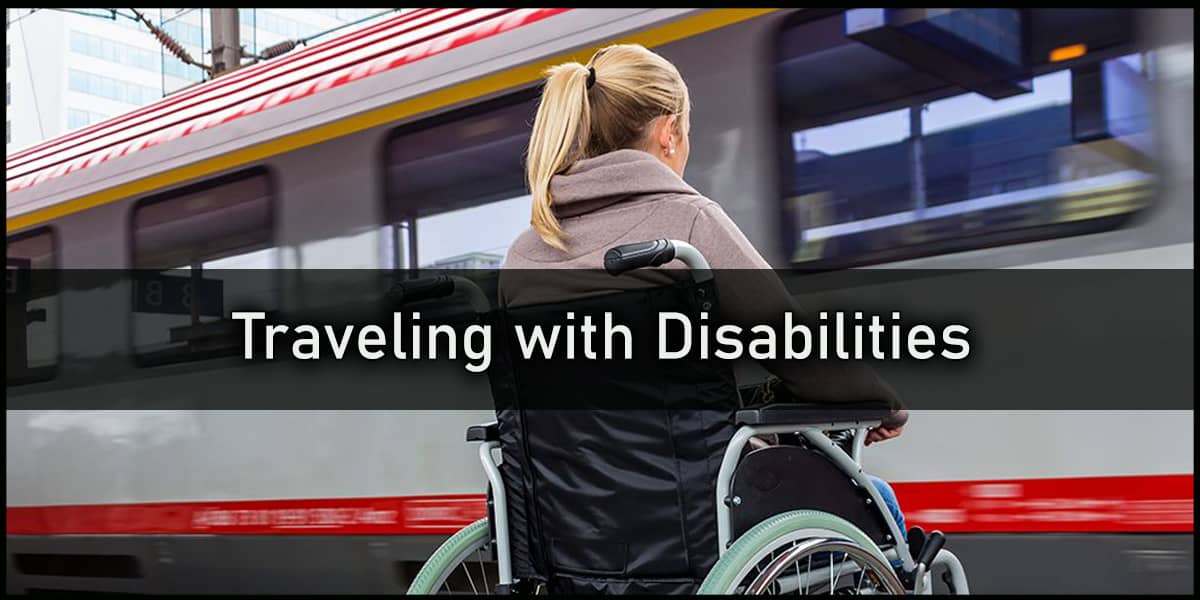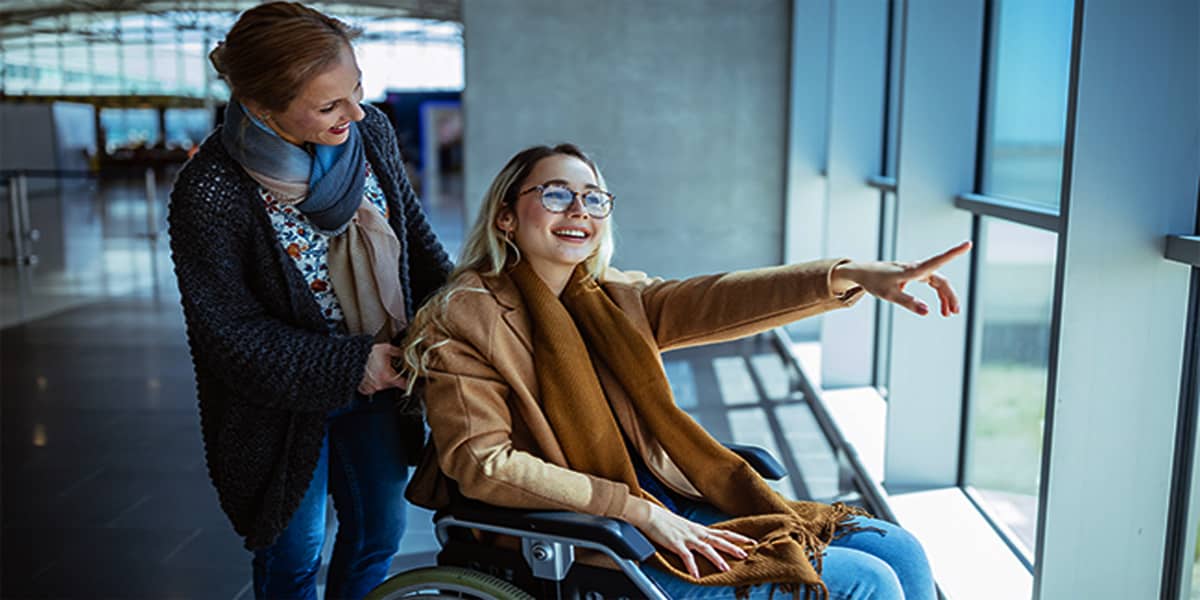
Traveling with Disabilities: Guidelines for travelers with disabilities
Traveling is a wonderful way to explore the world, create lasting memories, and embrace new experiences. For individuals with disabilities, planning a trip requires additional considerations to ensure accessibility and a smooth travel experience. This comprehensive guide will provide valuable advice, resources, and practical tips for travelers with disabilities, covering everything from accessible accommodations to transportation options and inclusive activities. This article will help you manage the particular difficulties and possibilities of accessible and inclusive travel, whether you have a mobility limitation, vision or hearing impairment, or any other limitation.
index
ToggleResearch and Planning
Thorough research and planning are crucial when traveling with disabilities. Begin by researching your destination’s accessibility standards, laws, and regulations. Look for online resources, forums, and travel blogs that provide information and firsthand experiences of accessible travel. Contact the relevant tourism board or visitor centers to inquire about accessibility features and any specific accommodations available.
Choosing Accessible Accommodations
Selecting the right accommodations is vital for a comfortable stay. Look for hotels, resorts, or vacation rentals that prioritize accessibility. Ensure they offer accessible rooms with wider doorways, grab bars, roll-in showers, and accessible travel paths. Contact the accommodation directly to discuss your specific needs and confirm the availability of accessibility features.
Transportation Options
Consider the transportation options available at your destination and how they cater to individuals with disabilities. Research accessible public transportation services, including buses, trains, and trams, and familiarize yourself with their accessibility features. If necessary, arrange for private transportation services that offer accessible vehicles. In some cases, renting a wheelchair-accessible car may be the most convenient option for independent travel.
Accessibility at Tourist Attractions and Activities
Before visiting tourist attractions or participating in activities, gather information on their accessibility. Many popular tourist sites have tried to improve accessibility, offering ramps, elevators, and accessible restrooms. However, it’s important to check if any specific accommodations or assistance are available, such as guided tours for individuals with visual impairments or captioning services for individuals with hearing impairments. Contact the attraction or activity provider to discuss your needs and any necessary arrangements.
Travel Insurance and Medical Needs
Ensure you have appropriate travel insurance that covers any pre-existing medical conditions and emergency medical expenses. In emergencies, carrying any necessary medical documentation, such as prescriptions and a list of medications, is essential. Research medical facilities at your destination and have contact information readily available. Additionally, consider carrying a medical alert card or bracelet that provides necessary information about your condition and any specific requirements.
Communication and Language Considerations
If you have a hearing impairment or difficulty with spoken language, consider learning basic sign language or carrying a communication card with important phrases and symbols. Familiarize yourself with local emergency numbers and keywords related to your disability. Utilize translation apps or devices that can assist with communication. Inform the hotel or accommodation staff about your specific contact needs to ensure effective communication during your stay.
Assistance at Airports and during Flights
Air travel can present unique challenges for individuals with disabilities, but airports and airlines offer assistance services to ensure a smoother travel experience. Contact your airline to request necessary accommodations, such as wheelchair assistance, priority boarding, or extra legroom seating. Familiarize yourself with the security screening procedures for travelers with disabilities and any requirements for carrying medical equipment or assistive devices.
Accessible Technology and Apps
Utilize the power of technology to enhance your travel experience. Numerous apps and websites provide information on accessible accommodations, transportation options, and tourist attractions. These resources can help you plan your itinerary, locate accessible facilities, and easily navigate your destination. Consider utilizing assistive gadgets and applications that are particularly created for people with disabilities, such as navigation apps for people with vision impairments or communication apps for people with speech impairments.
Traveling with Assistive Devices
If you need assistance devices like wheelchairs, crutches, or prosthetics, be sure they are in good working order and fulfill the safety regulations for air travel. It’s advisable to carry spare parts, batteries, or any specific tools required for maintenance. Notify the airline about your assistive devices in advance and inquire about their policies for storing and handling such equipment during the flight.
Community and Peer Support
Connecting with fellow travelers with disabilities can provide valuable insights and support. Join online communities or forums where individuals share their travel experiences, tips, and recommendations. Engaging with these communities can help you gather firsthand information, learn from other’s experiences, and build a supportive network of fellow travelers with disabilities.
Medication and Accessibility
If you rely on medication, ensure ample supplies for your trip, including any necessary documentation or prescriptions. Pack medications in your carry-on bag to provide easy access during the journey. Research local pharmacies and healthcare facilities at your destination if you need to refill prescriptions or seek medical assistance while traveling.
Accessible Dining while Traveling with Disabilities
Consider the accessibility of dining options at your destination. Look for restaurants that offer wheelchair-accessible entrances, spacious seating arrangements, and accessible restrooms. Research menus in advance to ensure they cater to dietary restrictions or allergies. Contact the restaurant beforehand to discuss any specific needs or accommodations if necessary.
Assistance Animals
If you require the support of a service animal, familiarize yourself with the laws and regulations regarding their entry into your destination country. Research the policies of airlines, accommodations, and tourist attractions regarding the presence of service animals. Carry the necessary documentation, such as a letter from your healthcare provider, outlining the need for the service animal.
Cultural Sensitivity and Awareness
When traveling to different countries and cultures, it’s important to be mindful of cultural differences and practices related to disabilities. Research the cultural attitudes and beliefs surrounding disabilities at your destination to ensure respectful interactions. Familiarize yourself with local customs or protocols when engaging with individuals with disabilities in the local community.
Feedback and Advocacy
After your trip, consider providing feedback to accommodation providers, transportation services, and tourist attractions regarding their accessibility features and services. Positive feedback can reinforce their efforts and encourage them to continue improving accessibility. In cases where you encounter challenges or barriers, providing constructive feedback can raise awareness and contribute to positive changes for future travelers with disabilities. Additionally, share your travel experiences and insights with online communities and travel platforms to help other individuals with disabilities plan their trips more effectively.
Conclusion
Traveling with disabilities is an opportunity to embrace new experiences, broaden horizons, and create cherished memories. With careful planning, thorough research, and access to the right resources, individuals with disabilities can enjoy accessible and inclusive travel experiences. By considering accessibility in accommodations, transportation, tourist attractions, and activities, and by utilizing technology and seeking community support, travelers with disabilities can navigate the unique challenges and maximize the enjoyment of their journeys. Travel is for everyone, and by advocating for accessibility and inclusivity, we contribute to a more inclusive and welcoming world. Happy and fulfilling travels await!
Recent Posts
Contact Us
+1 437 499 4559










